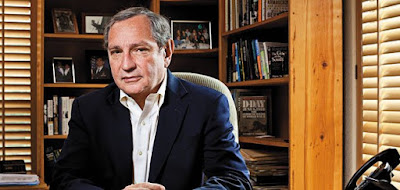Being landlocked in Alberta I seldom think about the oceans. I had never considered how our local agriculture can damage the oceans. But fertilizer, pesticide, and herbicide runoff make it from the rivers to the oceans creating lasting damage to the ocean environment. Just Google Gulf of Mexico dead zone to get an understanding of how everybody touches the oceans.
Overfishing is nothing new, we've heard about it for decades. Just think of the shutting of the Atlantic cod fishery in eastern Canada.
The die-off of coral is much more serious than I knew about.
Most alarming is learning how the oceans play their part in the problem of CO2 rise. I had no idea that the waters of the world absorb the gas, which sounds like a good thing, right? But once carbon dioxide is dissolved in water it reacts with it, lowering the pH levels and making the water more acidic which has dire consequences on marine life, from the bottom of the food chain all the way to the top and to humans on the land.
I am so thankful I found the book. It reinforced my desire to reduce my impact on the world.
Every little thing we do as individuals may seem inconsequential but others see what we do. Somebody may see you picking up a bit of litter and it may inspire that person to do the same or to switch from a single-use item to a reusable one.
Like many of these kinds of books, I found it rather one-sided; there was so much gloom and doom that I kept wanting to just throw my hands up.
On the tenth anniversary of publication, Alanna Mitchell wrote a piece for Canadian Geographic updating readers as to how things have changed in that time. Both the horror and the hope have expanded. Read it here:
https://www.canadiangeographic.ca/article/theres-no-coming-back-why-global-ocean-crisis-threatens-us-all
There were two lines in the book that stood out for me:
Near the end, he leaves me with this, "The scale of the solution has to be to the scale of the problem."
And.
“The problem of the atmosphere and the ocean is a problem of human behaviour.” - Monica Sharma, a physician who works for the United Nations.
Alanna Mitchell's website - https://alannamitchell.com/
 |
| Alanna Mitchell |
























